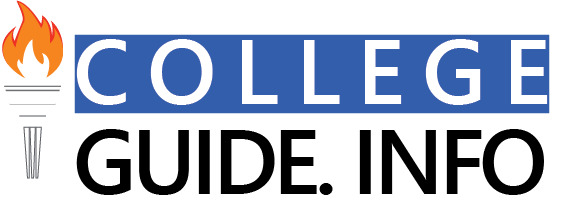





10 Interesting Facts about University of Missouri-St. Louis
- Founding and History: UMSL was founded in 1963 and is part of the University of Missouri System.
- Location: The university is located in St. Louis County, providing students with access to a major metropolitan area and a diverse range of cultural and professional opportunities.
- Academic Offerings: UMSL offers a wide range of undergraduate, graduate, and professional degree programs across various disciplines, including arts and sciences, business, education, nursing, and more.
- Student Population: As of my last knowledge update in September 2021, UMSL had an enrollment of over 16,000 students, creating a diverse and engaged learning community.
- Research Focus: UMSL is classified as a research university with high research activity by the Carnegie Classification of Institutions of Higher Education. It is known for its strong emphasis on research and innovation.
- Professional Schools: The university is home to several professional schools, including the College of Business Administration, the College of Education, and the College of Nursing.
- Campus Facilities: The campus includes modern facilities such as classrooms, laboratories, libraries, and specialized spaces for various academic disciplines. It also features amenities like residence halls, recreational facilities, and more.
- Community Engagement: UMSL places a strong emphasis on community engagement and has extensive partnerships with local businesses, organizations, and healthcare institutions.
- Cultural Offerings: The university is home to the Touhill Performing Arts Center, which hosts a wide range of cultural events and performances, contributing to the vibrant arts scene in the St. Louis region.
- Global Perspective: UMSL has a strong international presence and offers study abroad programs, allowing students to gain global perspectives and cultural experiences.
University of Missouri St Louis Baseball
The University of Missouri-St. Louis (UMSL) baseball program competes in NCAA Division II and the Great Lakes Valley Conference (GLVC). The Tritons, known for their skill and teamwork on the diamond, contend for conference titles. Coaches prioritize player development, discipline, and academic success, preparing student-athletes for success both in sports and academics. The program’s legacy reflects UMSL’s commitment to sporting excellence.
University of Missouri St Louis Ranking
University of Missouri-St. Louis (UMSL) is ranked among the top public research universities in the United States. It consistently receives high rankings for its programs in business, education, nursing, and social work. UMSL’s reputation for academic excellence and research contributions contribute to its strong standing in national and regional rankings. Please note that rankings may have evolved since then, and I recommend consulting official sources for the most recent information.
University of Missouri St Louis Division
The University of Missouri-St. Louis (UMSL) competes in NCAA Division II for athletics. As a member of the Great Lakes Valley Conference (GLVC), UMSL’s Tritons excel in various sports, emphasizing both athletic achievement and academic success. This division provides a competitive platform for student-athletes to showcase their skills.
Admissions
Acceptance Rate
57%
| SAT Score | 1020-1300 |
| ACT Score | 22-29 |
| Application Fee | $0 |
| SAT/ACT | Recommended but not required |
Tuition & Fee
| Living On-Campus | MO or IL Resident | Non-Resident | Midwest Student Exchange |
|---|---|---|---|
| Tuition | $12,648 | $31,516 | $18,192 |
All Programs
Education
Early Childhood Education
Education
Elementary Education
High School Education
Physical Education Teaching and Coaching
Business
Accounting
Actuarial Science
Business
Management Sciences and Information Systems
Sport and Fitness Management
Arts
Studio Arts
Web Page and Digital Design
Health Professions
Nursing
Science, Technology, and Math
Artificial Intelligence
Biochemistry and Molecular Biology
Biology
Chemistry
Civil Engineering
Computational and Applied Mathematics
Computer and Information Systems Security
Computer Programming
Computer Science
Data Analytics, General
Electrical Engineering
Information Technology
Mathematics
Mechanical Engineering
Neuroscience and Neurobiology
Physics
Humanities
Adult Development, Gerontology, and Aging
Anthropology
Art History
Communications
Creative Writing
Economics
English
European and Russian Studies
Foreign Languages and Literatures
History
Industrial and Organizational Psychology
International Relations
Liberal Arts and Humanities
Music History and Literature
Philosophy
Political Science and Government
Professional and Technical Writing
Psychology
Public Administration
Public Relations
Social Science Research Methods
Social Work and Youth Services
Sociology
Women’s Studies
Trades and Personal Services
Computer Engineering Technician
Enrollment
Full-Time Enrollment
4,415 Undergrads
Part-Time Undergrads
7,932

